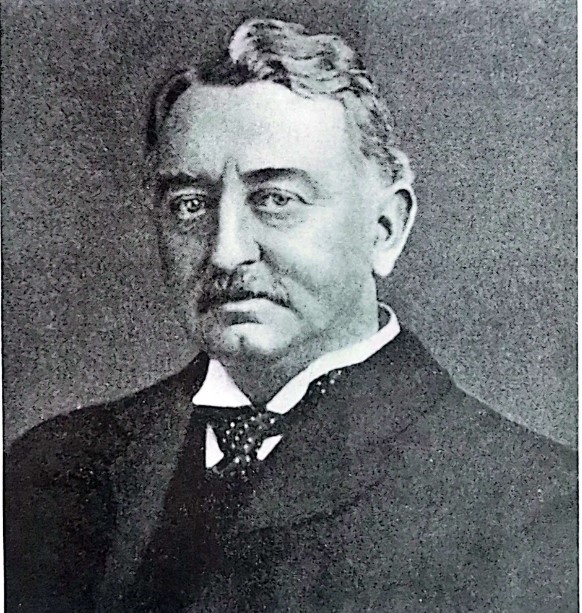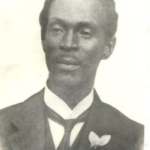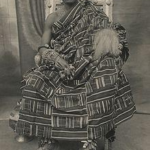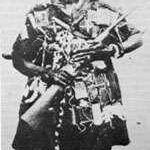RHODES, CECIL JOHN
- 6 Min Read
Cecil John Rhodes (July 5, 1853-March 26, 1902) was a visionary forward-looking imperialist whose personal career was to have an immense impact on the history of southern Africa. Committed to British expansion in Africa, and fueled by the political power his personal fortune gave him, he was largely responsible for the expansion of British interests north of the Limpopo River, which culminated in the annexation of what became Britain’s Central African Empire. Until their independence, two of the colonies, Northern and Southern Rhodesia, reflected in their names his significance.

PHOTO CAPTION: Cecil John Rhodes. SOURCE: EA Library
Rhodes was the son of an Anglican minister and attended local East Anglican schools until he was 17. Along with many of his countrymen of the period he suffered from tuberculosis and medical advice took him to Natal where his elder brother had begun farming. The diamond rush in Kimberley attracted Cecil John Rhodes, and his entrepreneurial skills, largely in service industries, made him a rich man by the age of 20. Despite breaks in the 1870s to study in Oriel College, Oxford, his financial acumen and ruthlessness increased his personal wealth.
Long immersed in the expansionist and supremacist literature of the period, Rhodes determined to translate his dreams into reality by seeking political power. In 1880, he won the Cape Parliament seat of Barkly West, and, by 1884, was Treasurer of the Cape Colony for a short time. But Rhodes’s ambitions were thwarted by British caution and by the intransigence of the independent Boer Republic, the Transvaal, led by President Paul Kruger.
He resolved to spread British hegemony northward, and to outflank caution and resistance by personal enterprise. His capacity to act alone was enhanced by the snowball quality of his business career. Having made one fortune out of the diamond boom, he was quick to opportunise on the discovery of gold on the Witwatersrand and invested heavily in the exploitation of the Reef.
His role as a gold magnate brought him wealth and the increasing support of international financiers; it also established him in British eyes as more than a mere maverick. This increasing support led him to send north a personal emissary, C.D. Rudd, who negotiated an infamous concession for mineral rights that bears his name from the Ndebele ruler, Lobengula in 1888.
This concession paved the way for Rhodes to establish the British South Africa Company (B.S.A.C.) in 1889, which planned not only mineral exploitation in the area that is now Zimbabwe, but also contemplated occupation and settlement. In the midst of this activity, Rhodes continued to cultivate his own back garden and, in l890, was elected Prime Minister of the Cape Colony. His personal interests, those of the Cape Colony, and those of Britain became hard to disentangle.
Having, earlier in his career, been instrumental in bringing Bechuanaland (Botswana) under British Protection, he succeeded, as Prime Minister of the Cape, in annexing Pondoland in the Eastern Cape. At the same time, his agents were active in extending BSAC rule north of the Limpopo, and, at one stage, were negotiating the transfer of Lourenço Marques from the Portuguese to the Company.
He stimulated railway construction within South Africa and never really dropped his commitment to the building of a railroad to link the Cape to Cairo, which would extend British access and control throughout the eastern side of the African continent.
But although he had overcome British reticence, to the extent of being made a Privy Councillor in 1895, he still faced a major obstacle in the Transvaal. Kruger’s unwillingness to permit easy access by Rhodes’ agents was symptomatic of the more powerful Afrikaaner urge to maintain their independence and way of life in the face of expansionist Britain. But that rugged resistance also opposed the modernisation of the Transvaal in ways the gold magnates considered imperative.
The conflict between the financial interest and the political and other interests represented by Kruger showed no signs of resolution, and Rhodes stooped to coercion to cut the Gordian knot. Rhodes attached himself to the rather thin issue of the Uitlanders (Europeans who came to South Africa expressly to work mining claims) in the Transvaal.
The controversy revolved around these nonburgher “outsiders,” almost all of whom were involved in the gold industry, and who were denied civil rights. Sensing, incorrectly, that the Uitlanders were willing to rebel against injustice, Rhodes sent in a column of troopers under Leander Starr Jameson to link up with the expected local insurgents in the hope that Kruger’s regime could be toppled by force. The raid was a disaster for the column for they were rounded up within hours of entering sovereign Transvaal territory. It was a greater disaster for Rhodes.
While there is little doubt of British connivance, this piratical act had to be disavowed once it had failed. Rhodes was virtually forced to resign as prime minister of the Cape, and also resigned as the chairman of the British South African Company.
Despite his subsequent attempts to rehabilitate himself (he, for example, resumed his chairmanship of the Chartered Company’s Board in 1898), he remained officially something of a pariah in British eyes. By the time of his death in 1902, many of his dreams were crumbling.
The expected returns on investment in the Rhodesias not only failed to materialise, but he encountered far more African resistance, in the mid-1890s, than had been contemplated. The Jameson Raid, which laid the groundwork for the subsequent Anglo-Boer War of 1899-1902, alienated him forever from many English-speaking and most Afrikaans speaking white South Africans. Although he did not live to see reconstruction after the war, it was unlikely that his earlier role would have been forgotten.
Rhodes’ contribution to race relations in Southern Africa was scarcely more enlightened. Within South Africa, much of the framework of labour recruitment, labour coercion and spatial segregation was laid down both within companies he had an active role in, and within a colony of which he was prime minister.
The Glen Grey Act, which had the effect of forcing many Africans to sell their labour as migrants (1894), remains one of Rhodes’ less alluring memorials as such marginalisation of Africans paved the way to the contemporary apartheid state.
Rhodes was a towering and imaginative figure about whom controversy still rages. His capacity as an entrepreneur and financier was remarkable, considering how little his background had prepared him for such. His manipulative skills were also apparent politically, although the last eight years of his life prove, at least, that his judgment was flawed.
His powers, reinforced by expansionist racial arrogance, embroidered with some notions of pan-Anglo-Saxonism, were considerable and few men have had such an immense influence on the lives of millions of people in such a short time.
RICHARD RATHBONE





